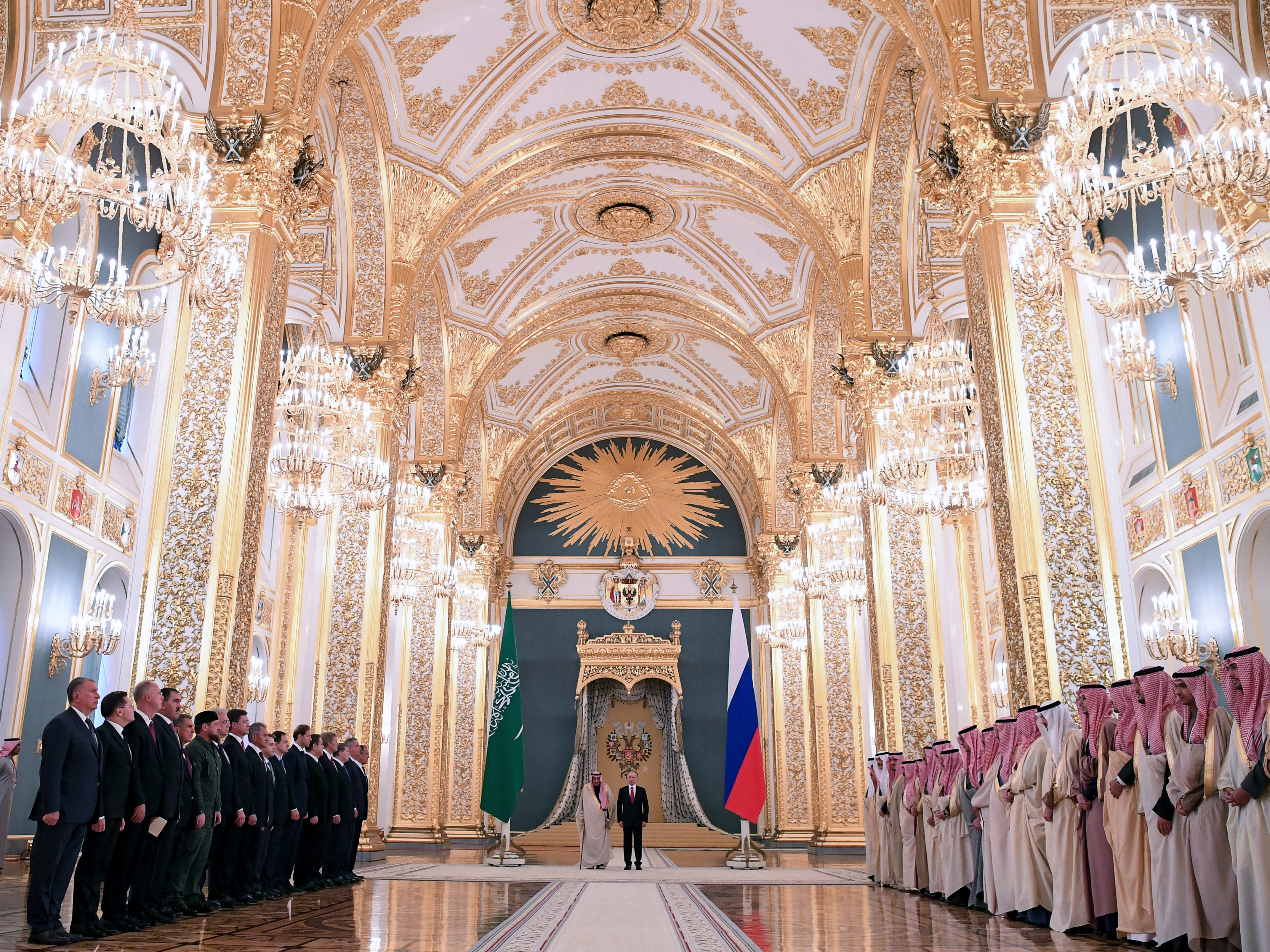Oil climbed higher on Thursday as King Salman of Saudi Arabia made the first ever visit by a Saudi monarch to Russia.
King Salman told Russian President Vladimir Putin in Moscow that the two countries will continue to work on stabilizing oil markets.
Brent crude oil, the international benchmark, was up by 2.0% at $56.91 per barrel and West Texas Intermediate, the US benchmark, was up by 1.6% at $50.80 per barrel at 12:51 p.m. ET.
“The Saudi visit to Russia marks a remarkable turnaround in the relationship between the two countries that had been staunch Cold War adversaries,” Helima Croft, head of commodity strategy at RBC Capital Markets, wrote in a note to clients.
“Like many important policy developments in the Kingdom, Crown Prince Mohammad bin Salman seems to have been the driving force behind the relationship upgrade, having made Russia one of his foreign policy stops when his father ascended the throne,” Croft said.
Saudi Arabia and Russia remain divided on several major issues, including the ongoing civil war in Syria, but have a mutual interest in seeing oil prices rise higher since both of their economies are highly dependent on the commodity. The two have cooperated on oil policy over the last year.

Russia, which is not a member of OPEC, joined the cartel-led production cut agreement, which aims to combat the world's oil glut that kept prices depressed for over two years, in November 2016. It was the first time Russia joined OPEC in a coordinated cut since 2001.
Then in May 2017, the two worked together to extend the cuts until the end of March 2018. Before the official OPEC meeting, Saudi Arabia and Russia together said they favored an extension.
Ahead of the king's visit, Putin said on Wednesday at the Russian Energy Week conference in Moscow that Russia is open to the possibility of extending the production cut deal with OPEC through the end of 2018. Saudi Energy Minister Khalid al-Falih, meanwhile, said the kingdom was "flexible" regarding that suggestion, according to Reuters.
"[C]oordination on oil policy has been perhaps the biggest deliverable, with Russia abandoning its longstanding aversion to cooperating with OPEC and essentially assuming the role of de facto co-president this year," Croft explained in the note. "Moreover, Putin signaled that he may not be looking to abandon this co-pilot role anytime soon, stating this week that Russia may be willing to extend the output agreement to the end of 2018."


